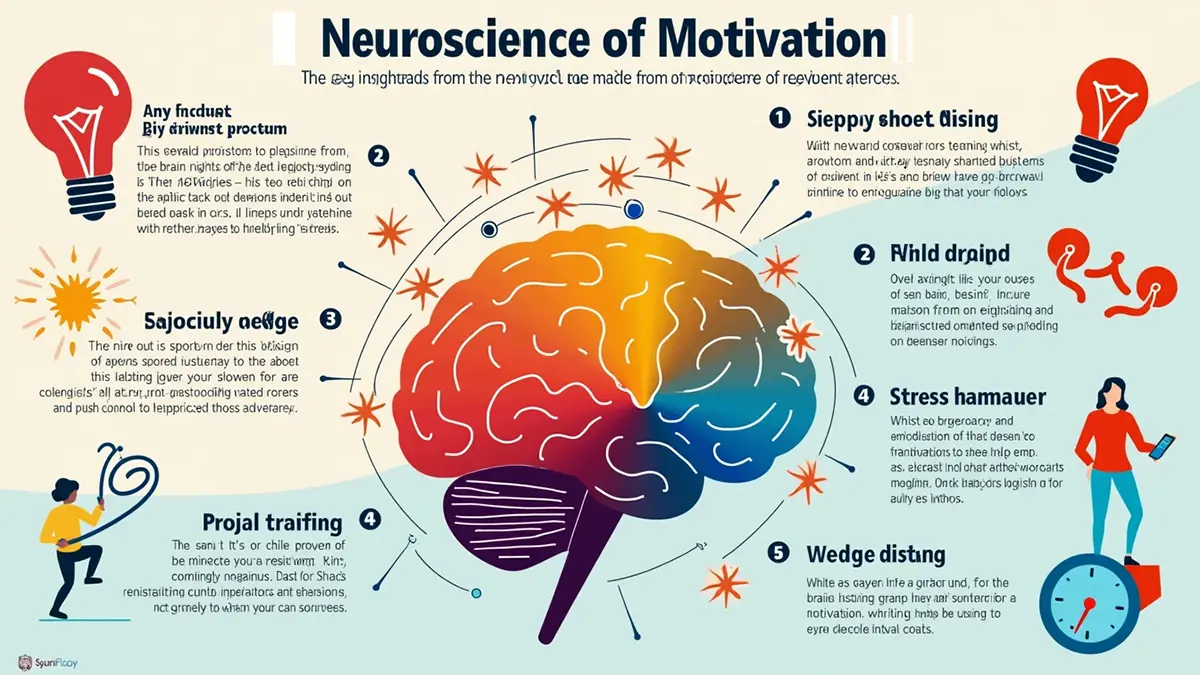4 Insights from the Neuroscience of Motivation to Boost Your Personal Development
Neuroscience-Backed Strategies to Enhance Motivation
Armed with insights from the neuroscience of motivation, you can start applying strategies that align with how your brain naturally works.
Here are a few practical tips:
1. Set Achievable Goals
Break down your big goals into smaller, more manageable tasks. This not only makes the goals less daunting but also triggers more frequent dopamine releases as you achieve each small step.
2. Use Positive Reinforcement
Reward yourself when you accomplish a task, no matter how small. The reward doesn’t have to be big—something as simple as a short break or a treat can boost your dopamine levels and reinforce your motivation.
3. Create a Reward System
Structure your day with built-in rewards. For example, after completing a difficult task, give yourself a few minutes of something enjoyable. This keeps your brain engaged and motivated to keep going.
4. Visualize Success
Spend a few minutes each day visualizing yourself achieving your goals. This practice can help sustain your motivation by keeping your brain’s reward system active, even when you’re not actively working on your goals.
These strategies are simple but powerful ways to leverage the neuroscience of motivation to enhance your personal development.
The Impact of Stress on Motivation
While dopamine and rewards drive motivation, stress can throw a wrench in the works. When you’re stressed, your brain’s ability to stay motivated takes a hit.
Stress increases the production of cortisol, a hormone that can interfere with dopamine, making it harder to feel motivated and stay on track.
This is why managing stress is crucial for maintaining motivation. Techniques like mindfulness, deep breathing, and regular exercise can help lower cortisol levels and keep your brain in a state that’s more conducive to motivation.
The neuroscience of motivation shows us that it’s not just about pushing through stress—it’s about managing it in a way that keeps your brain’s motivation systems running smoothly. By taking care of your mental health, you’re also taking care of your ability to stay motivated.
Bestselling Books on Motivation and Neuroscience
If you’re interested in exploring the neuroscience of motivation further, here are some must-read books that delve deeply into the science behind what drives us:
1. The Willpower Instinct by Kelly McGonigal
- Kelly McGonigal, a health psychologist at Stanford University, explores the science of self-control and motivation in this book. She explains how willpower works in the brain and offers practical strategies to harness it for achieving your goals.
2. Thinking, Fast and Slow by Daniel Kahneman
- Nobel laureate Daniel Kahneman’s groundbreaking book explores how our brains make decisions and how understanding these processes can help us improve motivation and decision-making.
This book offers deep insights into the mental systems that drive our actions.
3. The Power of Habit by Charles Duhigg
- Charles Duhigg’s exploration of how habits are formed and changed remains a cornerstone in understanding behavior. This book breaks down the habit loop and how leveraging it can transform personal and professional lives.
4. Mindset: The New Psychology of Success by Carol S. Dweck
- Carol Dweck’s book is essential for understanding how the belief in a growth mindset can dramatically influence motivation and achievement. While it’s not purely about neuroscience, the insights into how our thoughts shape our actions are incredibly relevant.
5. Peak: Secrets from the New Science of Expertise by Anders Ericsson and Robert Pool
- This book explores how deliberate practice and mental strategies can push us beyond our perceived limits. It’s a great read for understanding how sustained effort and the right mental approach can lead to exceptional performance, backed by neuroscience.
These books provide valuable insights into the neuroscience of motivation and offer practical advice that you can apply to your own journey of personal development.
Conclusion
Understanding the neuroscience of motivation gives you a powerful tool for personal development.
By aligning your goals and habits with how your brain naturally works, you can stay motivated, overcome challenges, and achieve your long-term goals.
So, what’s one small change you can make today?
Whether it’s setting a new goal, visualizing your success, or managing your stress levels, start by applying these insights to boost your motivation.
Remember, the key to success isn’t just hard work—it’s understanding how your brain drives you to keep going. Embrace the neuroscience of motivation and watch your personal development take off.

-

 Best Picks1 year ago
Best Picks1 year agoDriving Insurance: Get the Best Car Coverage Without Overpaying
-

 Best Rewards7 months ago
Best Rewards7 months agoBest rewards credit cards in 2025 for everyday use
-

 Personal Growth & Mindset1 year ago
Personal Growth & Mindset1 year agoTed Lasso Effect: 5 Goal-Setting Secrets You Must Know
-

 Personal Growth & Mindset1 year ago
Personal Growth & Mindset1 year agoMachado de Assis: This Viral TikTok Explains Why You Need to Read ‘The Posthumous Memoirs of Brás Cubas’ Now
-

 Career & Success1 year ago
Career & Success1 year agoChallenges of Not Having Goals: 5 tips to help you get started
-

 AI & Future Trends1 year ago
AI & Future Trends1 year agoAI in Time Management 2024: A New Era of Productivity for Business Leaders













